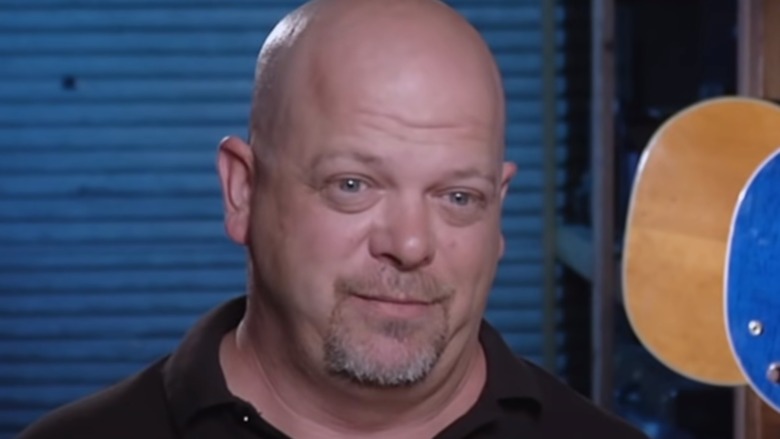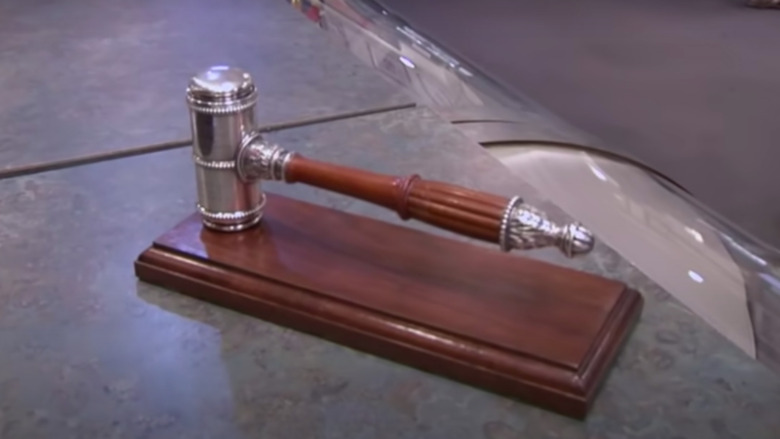Why This Piece Of Las Vegas History Didn't Sell On Pawn Stars
In a Season 6 episode of History's reality hit "Pawn Stars," Rick Harrison and a seller didn't see eye-to-eye on the value of a Las Vegas historical artifact. Not even close. Here's what happened.
The seller, Steve, came into Gold & Silver Pawn looking to sell a gavel-shaped sterling silver inkwell that he said belonged to William Andrews Clark, a Gilded Age mining and railroad tycoon who's the namesake of Clark County, Nevada, where Las Vegas is located. Steve wanted $3,800 for it, but said he'd be willing to go as low as $2,500.
Chumlee didn't know what an inkwell was, so Rick explained that before fountain pens were invented, people had to dip their pens in ink in order to write. This particular inkwell belonged to William Clark, who Chumlee also had never heard of, so Rick provided some historical context. Las Vegas was founded because Clark built a desert railroad from Salt Lake City to Southern California that stopped in Las Vegas, where there was a natural spring. The city built up around the railroad. He's so important to the history of the region that the county is named after him even though he never lived there. He mostly lived in Montana, where he bribed his way into becoming a U.S. senator. Rick said that if Clark were alive today, he would be a multibillionaire. "He was a money-making machine," Rick said, "but didn't have a lot of redeeming qualities."
Rick thought the inkwell was cool, but since Steve didn't have any proof of its authenticity, so Rick called in his friend Mark, who runs the Clark County Museum, to help determine if it belonged to the William Clark and not some other William Clark.
'Not gonna happen'
Mark explained that the gavel would have been given to Clark as a gift for his role as the president of the National Irrigation Congress, which lobbied for water policy that helped build the American West. Mark noted that the glass insert that would have held the ink was missing, but otherwise the piece was in great shape. He vouched for it being William Andrews Clark's inkwell. It could be faked, but why would it be?
With the piece's authenticity confirmed, it was time to get down to business. Rick asked Steve how much he wanted for it. "$3,800," Steve said. Rick looked at the gavel, then back to Steve, and flatly said, "Not gonna happen."
"It's neat, it's one of a kind, but who's gonna want to buy it?" Rick asked, not rhetorically. Steve answered someone who collects items related to the history of Clark County.
"No one's gonna think it was cooler than Mark, man, and he didn't wanna offer you nothin' for it," Chumlee said. He had a point!
Rick offered Steve $800 for the piece. Steve countered with $2,800. They weren't even in the same universe, price-wise. So Steve took his gavel and went home.
In the end, it just wasn't a special enough item to justify a price as high as Steve wanted. Inkwells from the period are very common, and Rick said if it didn't belong to Clark it would only be worth $150. And Clark is a relatively obscure historical figure with very limited collector appeal. And really, Steve should hold onto it, because it's obviously worth more to him than $800. The inkwell already has its rightful owner.

